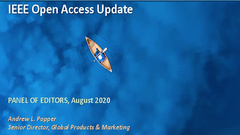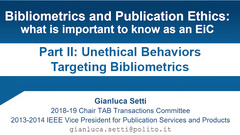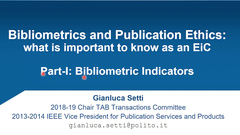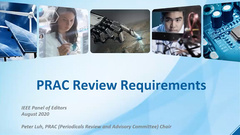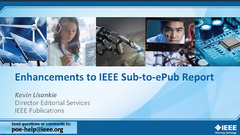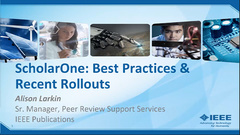Program for 2020 IEEE Integrated STEM Education Conference (ISEC)
Saturday, August 1
Saturday, August 1 9:00 - 9:15
Introduction
Saturday, August 1 9:15 - 10:00
Keynote Speaker 1 - David S. Touretzky, Carnegie Mellon University
Artificial Intelligence technology is delivering major benefits to society, from friendly intelligent assistants to self-driving cars. But it is also a source of new threats, including loss of privacy due to ubiquitous surveillance, and the potential misuse of deep fakes. Children need to understand this technology so they can separate fact from fiction and begin preparing for careers in an AI-powered world.
Since 2018, in a project funded by the National Science Foundation, I have been working with a group of K-12 teachers and computer science experts to develop national guidelines for teaching AI in K-12. We've identified "Five Big Ideas in AI" that serve as the organizing framework for the guidelines, and we're now developing grade band progression charts for each big idea. In this talk I'll describe what K-12 students and teachers should know about AI, and how they can develop competencies to advance from AI consumers to AI creators.
Saturday, August 1 10:00 - 10:45
Keynote Speaker 2 - Naveen Verma, Princeton University
Machines have reached an inflection point, where they can perform at or beyond the level of humans in specific tasks traditionally associated with cognition (vision, language, strategic gameplay). How did this remarkable capability come to be? And why, when we go to deploy machines in even friendly real-world environments, do they so often fail gloriously? We may have set ourselves out on an exciting journey of discovery about artificial intelligence and, indeed, its parallels with human intelligence. But even as we embark on this journey, which is unlikely to conclude anytime soon, we would like to create evermore powerful and intelligent machines. So, how should we proceed, with such an incomplete understanding. This talk will explore the simple realities of what we know about artificial intelligence, and what clues these give us for both the deeper insights we seek and the for the paths we may pursue to build increasingly capable and useful machines.
Saturday, August 1 10:45 - 11:30
Keynote Speaker 3 - Burt Dicht, Director of Student & Education Programs at IEEE
IEEE is known for "Advancing Technology for Humanity." As impressive as the technology of today is, it is the result of people. Ensuring there is a pool of talented individuals entering engineering and technology fields is an important part of IEEE's mission. The students of today are the engineering and technology experts of tomorrow who will spur innovation and solve the challenges and continue advancing technology for humanity. As a result, IEEE is invested in inspiring the next generation to pursue STEM fields and it is IEEE volunteers who are helping to spark excitement about engineering through their pre-university STEM education programs.
As impressive as IEEE's efforts are each year, we do not know collectively what is being done across the institution. There is no central place for volunteers to share their effective programs with each other, no central resources that volunteers can draw from when developing local STEM programs, and no data collection system to assess impact. The answer is the IEEE Volunteer Pre-University STEM Portal, now under development by Educational Activities with support from MGA, Technical Activities, and other stakeholders within IEEE. The portal is a centralized resource that that will provide operating units (i.e., student branches, chapters, sections, technical societies, etc.) and volunteers access to opportunities that will enable them to plan and execute pre-university STEM-based activities.
The intent of the portal is to leverage the reach and strength of IEEE's global communities to impact as many students as possible. This portal will feature a searchable library of STEM programs and activities and volunteers will have access to "how-to" resources in order to facilitate the execution of these pre-university STEM programs or create their own. Mr. Dicht's presentation will introduce you to the portal, its features and benefits for volunteers, and how it will move IEEE's pre-university STEM programs to the next level.
After the live-stream click here to explore the IEEE ISEC virtual content
 Cart
Cart Create Account
Create Account Sign In
Sign In
